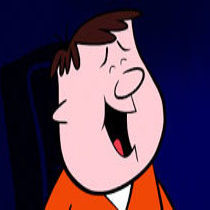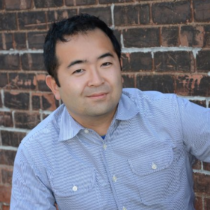Landscape Architecture for Landscape Architects › Forums › GENERAL DISCUSSION › Grounding Landscape Urbanism… your definition.
- This topic has 1 reply, 7 voices, and was last updated 15 years, 3 months ago by
 nca.
nca.
-
AuthorPosts
-
October 26, 2010 at 11:21 pm #167223
 Thomas J. JohnsonParticipantOctober 26, 2010 at 11:39 pm #167222
Thomas J. JohnsonParticipantOctober 26, 2010 at 11:39 pm #167222 Jason T. RadiceParticipant
Jason T. RadiceParticipantThe GSD is not a fad, its been around a loooooong time. But some of the academic drivel that is a result of the “research” going on there is, and in academia as a a whole. Being active in academia myself (but I am PAYING to be there) I’ve been reading a bunch of LA theory lately, and can find logic flaws in almost all of it. Many of the authors have an incorrect notion of history, design theory, or human perception. Much of it stems for overanalysis and overthinking of simple topics, trying to get it to fit in a little box as Andrew said. I’d like to know this, who are these people and what makes them so important (besides their own perception)? Why should we listen to them? They are the ones who come up with these ideas and apply arbitrary names. Often they are “quote monkeys” who reference and site others works, and what makes the citation’s author correct? Just how much original research actually takes place?
I have a few ideas, so I guess I’ll just type it up and apply some random name to it and sent it off to JOLA for publication.
To sum it up, I view this a a similarity to design styles in Architecture. Come up with something slightly different, choose a name and BOOM! A new movement (fad), good or bad.
October 27, 2010 at 10:22 am #167221 Trace OneParticipant
Trace OneParticipantwhat books are recommended for LA theory, these days, Jason? I would be interested…
October 27, 2010 at 3:50 pm #167220 Jason T. RadiceParticipant
Jason T. RadiceParticipantWell, one I can highly recommend is actually a compilation of many different authors pieced together from books and papers. It is aptly titled “Theory in Landscape Architecure” edited by Simon Swaffield. It has an eclectic mix of authors from different times/eras , and while I don’t particularly care for many of the selections, it gives you a nice variety of thought and starting points for more in depth reading, should you care to do so. McHarg, Corner, Eckbo, Walker, Olin and many others are well represented. Corner is especially prolific.
I’ve been trying to read Ann Whiston Spirn “The Language of Landscape” for some time, but getting though the first few chapters is a challenge, but the book seems to “open up” further in. I usually abandon it for something by Witold Rybczynski though. I started to read “Language” on the plane to Vegas a year and a half ago and still haven’t finished it. Jane Jacob’s last book was excellent as well. I read a bunch of architecture and urban sociology books as well. My most recent aquisition is “Cities for People” by Jan Gehl. Excellent.
November 5, 2010 at 8:00 pm #167219 Tosh KParticipant
Tosh KParticipantAs I understand it was coined by a group critical of the separation of the understanding ecological processes and urban processes. It is/was an attempt to allow for urban designs to accommodate both the human constructs and the necessary ecological processes. It is the first “wave” of reexamining the profession from a performance perspective (“hyper nature” is a term that plays a role here somewhere) in relation to contemporary ecological discourse (concepts/words like adaptive and resilience are borrowed from here).
I’ve heard that those who were initially involved in the discourse, Waldheim, et al, have become weary of the term, since it often neglects less quantifiable aspects of design (beauty, experience, etc), and distances itself often by implication from cultural aspects of design.
In addition to Swaffield I would recommend the usual “landscape urbanism reader”, looking at competition entries for the high line/rising currents, “large parks,” writings/lectures by Michael Van Valkenburgh, writings by Kristina Hill and elizabeth meyer’s “sustaining beauty,”
As for how it’s done, I think many practitioners don’t necessary label their projects as such but contain aspects of the theories, Portland and Seattle’s park and stormwater systems, Brooklyn Bridge Park, STOSS’s work, SvrR’s work all share some core principles.I would say that landscape urbanism encompasses the work and discourse of contemporary practice involving the public realm that addresses both the design of the urban environment and its performance relative to the ecological processes the design is sited in.
-
AuthorPosts
- You must be logged in to reply to this topic.


